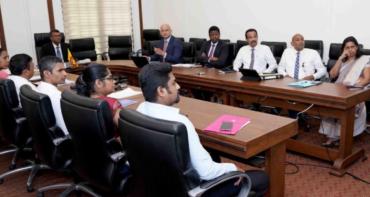Pacific Trade officials have wrapped up a two-day virtual workshop on the World Trade Organisation (WTO) Trade Facilitation Agreement aimed at reinvigorating intra-regional and global trade post Covid-19.

Pacific Trade officials have wrapped up a two-day virtual workshop on the World Trade Organisation (WTO) Trade Facilitation Agreement, aimed at reinvigorating intra-regional and global trade post Covid-19.
In a workshop jointly organised by the Commonwealth Secretariat and the Pacific Islands Forum Secretariat, more than 60 participants took part in virtual workshops on trade facilitation and regional integration, which was originally intended to have been held in Sydney in March 2020.
In opening formalities, PIFS Director of Programmes and Initiatives Zarak Khan noted trade facilitation is one of the five priorities included in the Pacific Aid-for-Trade Strategy 2020-2025.
“In the Pacific, COVID-19 has severely reduced frequency and reliability of air and sea freight services, thus adding additional challenges for a region which is already experiencing one of the highest transport costs in the world,” he added.
The Pacific Humanitarian Pathway on COVID-19 was highlighted as a model for regional trade facilitation.
Trade Adviser at the Commonwealth Secretariat, Salamat Ali, and Ambassador Mere Falemaka of the Pacific Islands Forum-Geneva Office, moderated the two-day virtual workshop.
Dr Ali noted the high costs of cross border trade to Pacific countries, due to the size of their economies and their relative isolation from major markets. He emphasised to use this opportunity for digitising trade procedures through swift implementation of WTO’s Trade Facilitation Agreement.
“It’s crucial to ensure logistics and operations at country borders are functioning seamlessly, so that the international trade continues smoothly to mitigate some of the adverse effect of the Covid-19 pandemic”, Dr Ali said.
Global guest panellists joined discussions on the importance of well-functioning trade facilitation frameworks to mitigate the disruptions on trade and global value chains while increasing the region’s overall competitiveness. Best practice examples of regional cooperation and trade facilitation were shared from the Caribbean region. Beyond regional approaches, the meeting reflected upon global opportunities for regionalism and resilience, such as the WTO's Trade Facilitation Agreement (TFA), a global framework to modernize cross-border trade
The workshop continues momentum on a regional trade facilitation agenda for the Pacific, as a priority area in the Pacific Aid-for-Trade Strategy 2025, endorsed by Pacific Forum Trade Ministers in February 2020.



